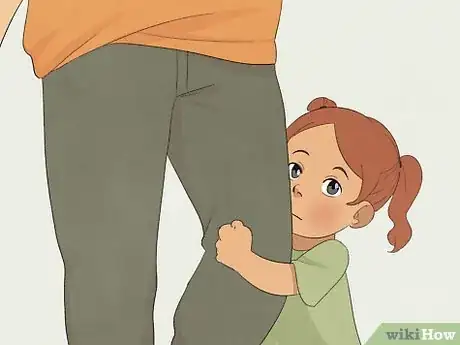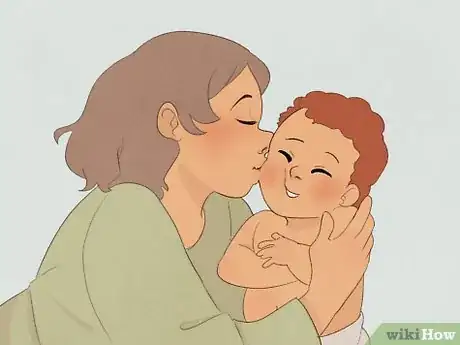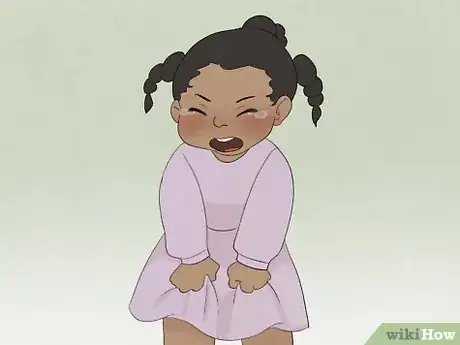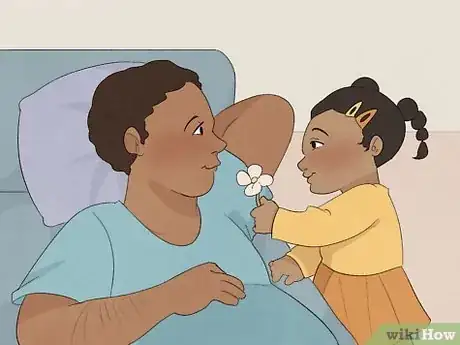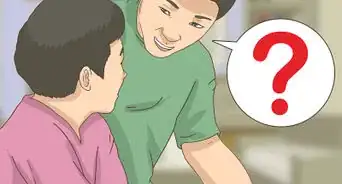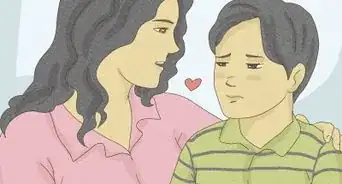This article was co-authored by Supatra Tovar, PsyD, RD and by wikiHow staff writer, Glenn Carreau. Dr. Supatra Tovar is a Licensed Clinical Psychologist (PSY #31949), Registered Dietitian, Fitness Expert, and the Owner of Dr. Supatra Tovar and Associates. Dr. Tovar has worked in the fields of health education, clinical dietetics, and psychology. With over 25 years of holistic wellness experience, she practices Holistic Health Psychotherapy. She combines her psychology, diet, and fitness knowledge to help those struggling with depression, weight gain, eating disorders, life transitions, and relationships. Dr. Tovar holds a BA in Environmental Biology from The University of Colorado Boulder, an MS in Nutrition Science from California State University, Los Angeles, and a PsyD in Clinical Health Psychology from Alliant International University, Los Angeles.
There are 11 references cited in this article, which can be found at the bottom of the page.
This article has been viewed 6,236 times.
Loving your child is as natural as breathing, but how can you know if they feel loved and safe? From an infant’s happy smile to small gifts from a child, several easy signs will tell you when kids understand all the love their parents give them. Watching your child’s body language will tell a lot about how they perceive themselves and the world, and if they are feeling loved and secure. Read on, and we’ll show you how to decipher your child’s behavior, words, and body language so you know exactly how loved they feel!
Steps
Expert Q&A
-
QuestionHow do you know if your child is unhappy?
 Supatra Tovar, PsyD, RDDr. Supatra Tovar is a Licensed Clinical Psychologist (PSY #31949), Registered Dietitian, Fitness Expert, and the Owner of Dr. Supatra Tovar and Associates. Dr. Tovar has worked in the fields of health education, clinical dietetics, and psychology. With over 25 years of holistic wellness experience, she practices Holistic Health Psychotherapy. She combines her psychology, diet, and fitness knowledge to help those struggling with depression, weight gain, eating disorders, life transitions, and relationships. Dr. Tovar holds a BA in Environmental Biology from The University of Colorado Boulder, an MS in Nutrition Science from California State University, Los Angeles, and a PsyD in Clinical Health Psychology from Alliant International University, Los Angeles.
Supatra Tovar, PsyD, RDDr. Supatra Tovar is a Licensed Clinical Psychologist (PSY #31949), Registered Dietitian, Fitness Expert, and the Owner of Dr. Supatra Tovar and Associates. Dr. Tovar has worked in the fields of health education, clinical dietetics, and psychology. With over 25 years of holistic wellness experience, she practices Holistic Health Psychotherapy. She combines her psychology, diet, and fitness knowledge to help those struggling with depression, weight gain, eating disorders, life transitions, and relationships. Dr. Tovar holds a BA in Environmental Biology from The University of Colorado Boulder, an MS in Nutrition Science from California State University, Los Angeles, and a PsyD in Clinical Health Psychology from Alliant International University, Los Angeles.
Licensed Clinical Psychologist (PSY #31949), Registered Dietitian, & Fitness Expert Licensed Clinical Psychologist (PSY #31949), Registered Dietitian, & Fitness ExpertExpert AnswerOne tip is to look for signs of happiness in their artistic expression. What do their drawings look like? Are they serene and peaceful? Are they playful, happy, and colorful? Or are they moody, dark, or sad? You can tell a lot about what is going on with a child by looking at their art.
Licensed Clinical Psychologist (PSY #31949), Registered Dietitian, & Fitness ExpertExpert AnswerOne tip is to look for signs of happiness in their artistic expression. What do their drawings look like? Are they serene and peaceful? Are they playful, happy, and colorful? Or are they moody, dark, or sad? You can tell a lot about what is going on with a child by looking at their art. -
QuestionHow do you know a child feels safe with you?
 Supatra Tovar, PsyD, RDDr. Supatra Tovar is a Licensed Clinical Psychologist (PSY #31949), Registered Dietitian, Fitness Expert, and the Owner of Dr. Supatra Tovar and Associates. Dr. Tovar has worked in the fields of health education, clinical dietetics, and psychology. With over 25 years of holistic wellness experience, she practices Holistic Health Psychotherapy. She combines her psychology, diet, and fitness knowledge to help those struggling with depression, weight gain, eating disorders, life transitions, and relationships. Dr. Tovar holds a BA in Environmental Biology from The University of Colorado Boulder, an MS in Nutrition Science from California State University, Los Angeles, and a PsyD in Clinical Health Psychology from Alliant International University, Los Angeles.
Supatra Tovar, PsyD, RDDr. Supatra Tovar is a Licensed Clinical Psychologist (PSY #31949), Registered Dietitian, Fitness Expert, and the Owner of Dr. Supatra Tovar and Associates. Dr. Tovar has worked in the fields of health education, clinical dietetics, and psychology. With over 25 years of holistic wellness experience, she practices Holistic Health Psychotherapy. She combines her psychology, diet, and fitness knowledge to help those struggling with depression, weight gain, eating disorders, life transitions, and relationships. Dr. Tovar holds a BA in Environmental Biology from The University of Colorado Boulder, an MS in Nutrition Science from California State University, Los Angeles, and a PsyD in Clinical Health Psychology from Alliant International University, Los Angeles.
Licensed Clinical Psychologist (PSY #31949), Registered Dietitian, & Fitness Expert Licensed Clinical Psychologist (PSY #31949), Registered Dietitian, & Fitness ExpertExpert AnswerExamine their overall functioning. How is the child performing in school or in their sports? What do their teachers say about them? How is their physical and emotional health? A child who feels loved and safe will usually be thriving in all areas of their life.
Licensed Clinical Psychologist (PSY #31949), Registered Dietitian, & Fitness ExpertExpert AnswerExamine their overall functioning. How is the child performing in school or in their sports? What do their teachers say about them? How is their physical and emotional health? A child who feels loved and safe will usually be thriving in all areas of their life.
References
- ↑ https://www.cdc.gov/ncbddd/actearly/milestones/milestones-2mo.html
- ↑ https://www.cdc.gov/ncbddd/actearly/milestones/milestones-2mo.html
- ↑ https://www.cdc.gov/ncbddd/actearly/milestones/milestones-9mo.html
- ↑ https://www.cdc.gov/ncbddd/actearly/milestones/milestones-9mo.html
- ↑ https://www.zerotothree.org/resources/294-first-feelings-the-foundation-of-healthy-development-starting-from-birth
- ↑ https://www.ncbi.nlm.nih.gov/books/NBK356196/
- ↑ https://www.ncbi.nlm.nih.gov/books/NBK356196/
- ↑ https://www.helpguide.org/articles/parenting-family/attachment-issues-and-reactive-attachment-disorders.htm
- ↑ https://my.clevelandclinic.org/health/articles/14406-temper-tantrums
- ↑ https://www.psychologytoday.com/us/blog/how-raise-happy-cooperative-child/201506/managing-tantrums
- ↑ https://www.psychologytoday.com/us/blog/beyond-pink-and-blue/201312/give-gifts-teach-about-giving
- ↑ https://kidshealth.org/en/parents/self-esteem.html
- ↑ https://greatergood.berkeley.edu/article/item/five_ways_to_talk_with_your_kids_so_they_feel_loved
- ↑ https://kidshealth.org/en/parents/preteen.html



